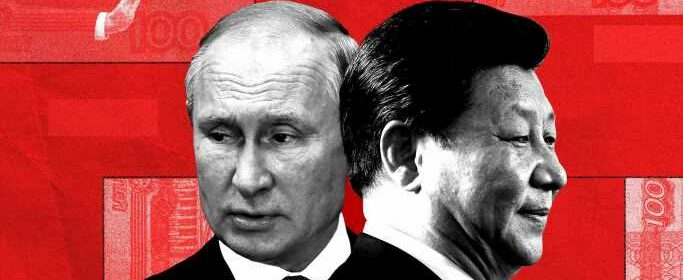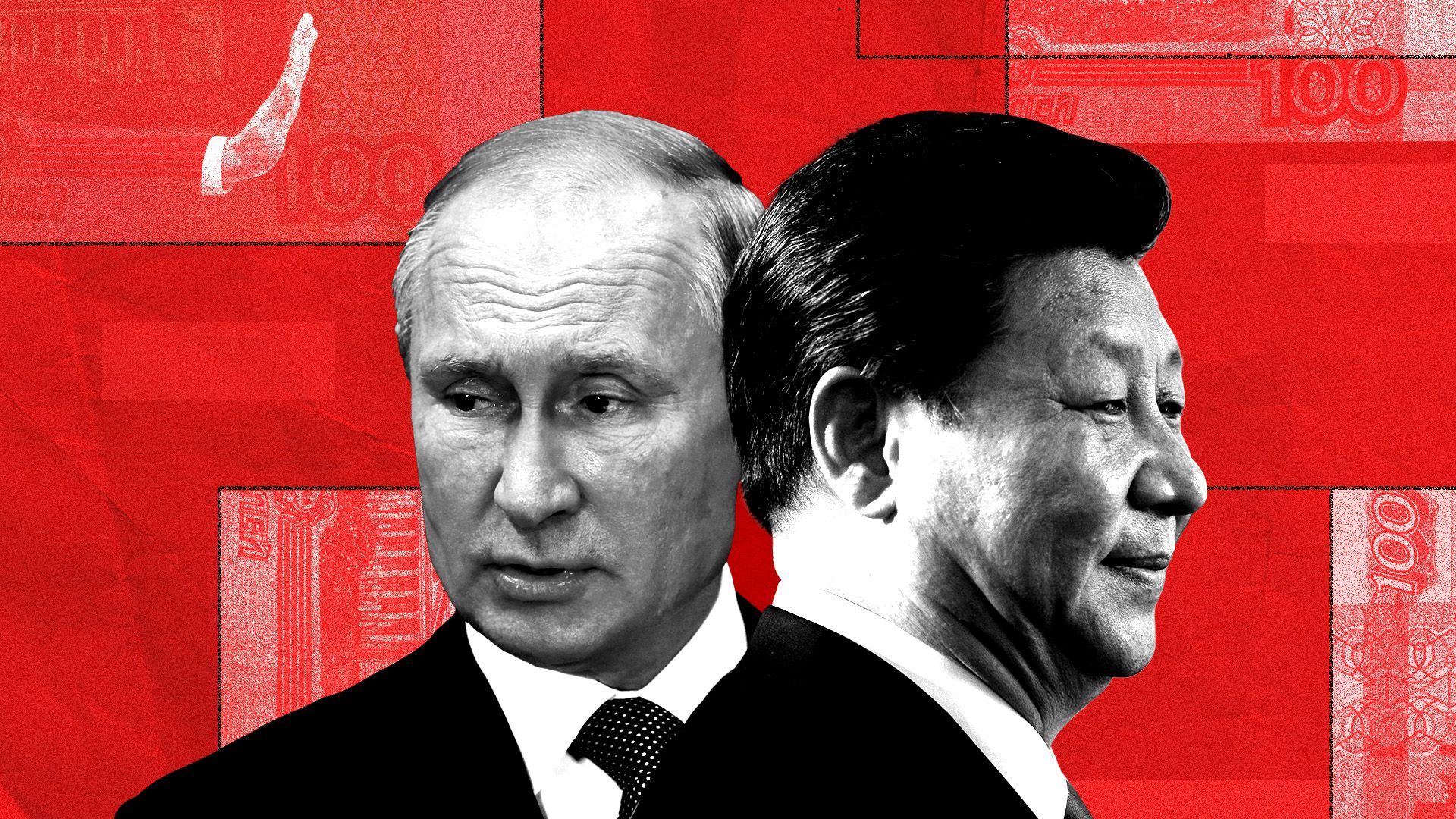Western sanctions tie Russia even tighter to China

Photo illustration: Sarah Grillo/Axios. Photos: Mikhail Svetlov, Leon Neal WPA Pool/Getty Images
Western sanctions over Vladimir Putin's invasion of Ukraine will increase Russia's already significant economic reliance on China.
Why it matters: Moscow could blunt the impact of sanctions by deepening itsgrowing alignment with Beijing, giving both countries more leverage in their disputes with the West — but potentially fostering resentment in Russia over the increasingly lopsided relationship.
Catch up quick: The Chinese government said in a statement that it strongly supports "respecting and safeguarding the sovereignty and territorial integrity of all countries," including Ukraine, but has stopped short of condemning Russia's invasion, and has criticized the imposition of sanctions on Russia.
The state of play: In the weeks before the invasion, Beijing lifted restrictions on wheat imports from Russia and signed a 30-year deal to buy increased volumes of Russian gas — signaling China's massive market was opening further to Russia.
- China and Russia have recently inked several energy deals that are largely outside the U.S. dollar-based international financial system, using the Chinese yuan, the Financial Times reports.
- Russian oil company Gazprom Neft announced last year that it would use yuan for airplane fuel transactions with China instead of the U.S. dollar.
- Russia is also a major recipient of loans from Chinese financial institutions, receiving $151 billion between 2000 and 2017.
A previous round of Western sanctions over Russia's 2014 annexation of Crimea saw Russia reorient its economy toward China, signing a $400 billion deal to send gas there and increasing cooperation around infrastructure and technology.
Yes, but: A growing Russian dependence on China could cause friction between the two countries down the line.
- Moscow already chafes at being beholden to a country that was once its protégé during Soviet times, and is uncomfortable with China's growing presence in Central Asia, which Russia regards as its backyard, Yun Sun, China program director at the Stimson Center, told Axios.
- Greater economic dependence on China will only deepen that resentment, Sun said.
The big picture: China is already Russia's largest trading partner, accounting in 2020 for 23% of Russia's imports (everything from textiles to TVs) and 15% of its exports (mostly oil and gas).
- "They can get anything they want from China except for high tech," says Mary Lovely of the Peterson Institute for International Economics. Advanced semiconductors and other emerging technologies are exactly what the U.S. and EU are targeting with export controls on semiconductors that Japan and Taiwan are also joining.
- China does provide 70% of Russia's chip supply and it could help Russia evade the sanctions on sensitive technologies like chips, "but then the question becomes, what's in it for China," Lovely says.
What to watch: How much pressure from the West is China is willing to absorb.
- Two Chinese-state-owned banks have restricted some financing to Russia after the invasion, suggesting China doesn't want to be seen as openly enabling Russia.
- China abstained from voting on a UN Security Council resolution condemning the invasion, instead of siding with Russia's veto.
China's leaders aren't willing to indelibly tie themselves to "Putin's chariot," Sun said. "For China, this is a calculus. There is benefit and cost. If the cost is not significant for supporting Russia or continuing economic transactions with Russia, then China will continue it," Sun said.
- "If there is significant cost to the Chinese financial and economic relations with Russia, then the Chinese will recalculate."
- "China's in the driver's seat right now. It's the one that Russia needs, not the other way around," Lovely added.
Go deeper: Washington wakes up to Beijing-Moscow alignment
Source: Read Full Article
